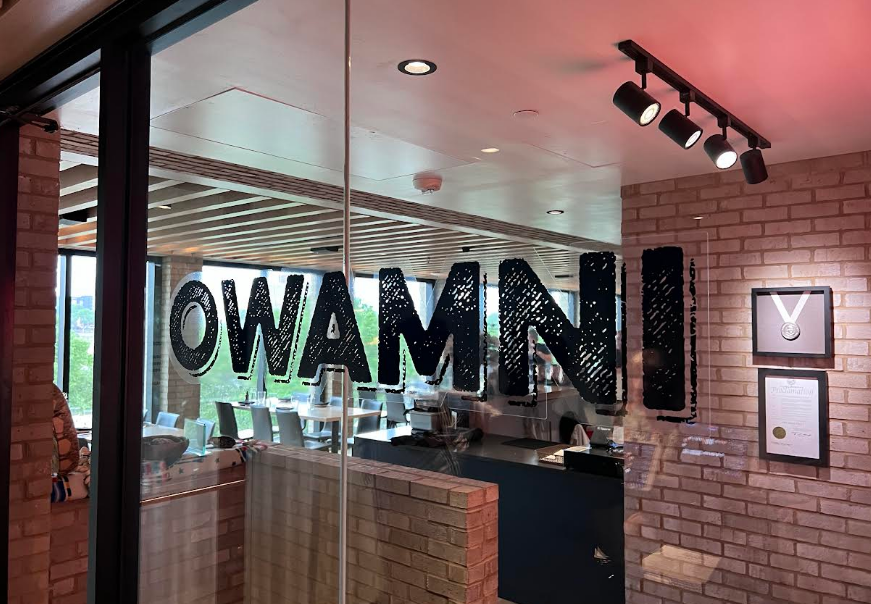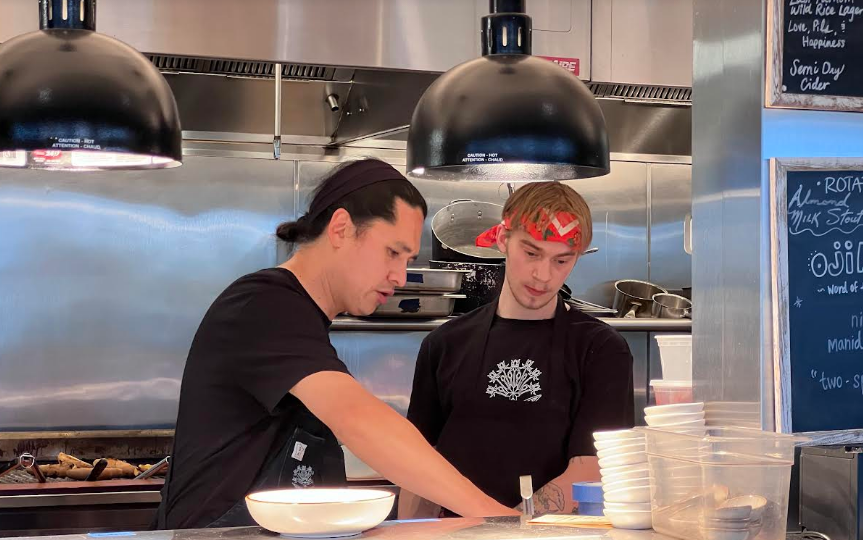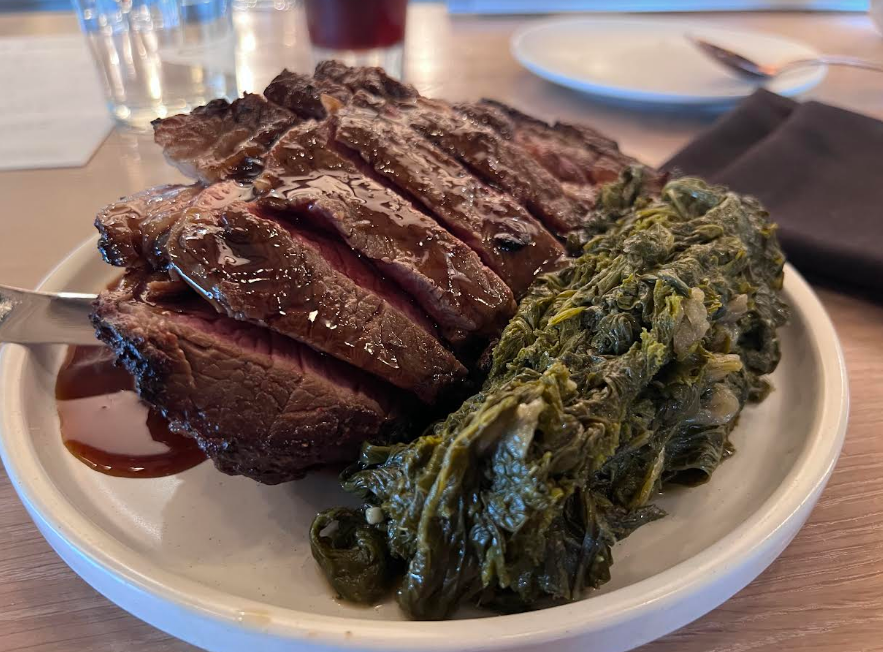
- Details
- By Darren Thompson
The North American Traditional Indigenous Food Systems (NATIFS) announced on Friday, September 15, 2023, it has acquired Owamni, the award-winning modern Indigenous full service restaurant in downtown Minneapolis. The James Beard Award-winning restaurant was previously owned by Ghost Dancer, LLC, a company co-owned by Sean Sherman (Oglala Sioux) and Dana Thompson.
Together, Sherman and Thompson branded “The Sioux Chef” and launched NATIFS, the Tatanka Truck food truck and Owamni.
“Moving Owamni into the NATIFS family fulfills the original vision, making the longevity of Owamni more possible while focusing on mission over profit,” NATIFS founder and executive director Sean Sherman said in a statement. “This acquisition seamlessly integrates into our broader vision, offering new possibilities for guest chef events, exchanges, and the expansion of Owamni into a training center.”
 Make A Donation Here
Make A Donation Here
NATIFS was founded in 2017 as a non-profit organization and is dedicated to addressing economic and health crises in Indigenous communities by revitalizing Native foodways through education, training, and partnership with Indigenous food providers. NATIFS launched Indigenous Food Lab Market earlier this year in June, in Minneapolis’s Midtown Global Market, as an extension of NATIFS’ Indigenous Food Labs, which was launched at the same location in 2020.

The Indigenous Food Lab Market is a pilot program, Sherman told Native News Online in June, and efforts to launch similar markets in various regions throughout the country are on the horizon. The market showcases packaged food products from Indigenous vendors and features a hot food bar, grab-and-go food items, and an education studio that provides training and education of how to prepare, and cook, Indigenous foods.
Together with the Indigenous Food Lab, the Indigenous Food Labs Market, the Tatanka Truck (a food truck launched in 2015 and is now parked outside Owamni that serves Indigenous foods from local Indigenous ingredients), and now Owamni, Sherman intends to continue to address economic and health crises in Indigenous communities by revitalizing Native foodways.
“By multiplying Indigenous food opportunities, we can drive direct economic development benefits and improve access to nutritious foods in communities disproportionately affected by food-related health disparities,” Sherman said. “Owamni already uses many Indigenous-produced foods, so we can continue to build opportunities for Indigenous food-related enterprises to thrive.”

Owamni made its debut in 2021, in the midst of the COVID-19 pandemic, and earned “Best New Restaurant in America” by the James Beard Foundation in 2022. It is the first Indigenous restaurant, led by the Oglala Lakota Chef Sherman, to receive the acknowledgement. A year after Owamni opened, the State of Minnesota declared July 19 as “Owamni Day” on the restaurant’s first year anniversary in 2022.
Owamni was previously a for-profit company, the Sioux Chef, run by Sherman and Dana Thompson; the pair also co-founded NATIFS. With the acquisition, Owamni becomes a non-profit, full-service all Indigenous restaurant that serves food with ingredients harvested by Indigenous people from the Western hemisphere.
Revenue generated by the restaurant will directly support programs that benefit Native people and communities. In total, operations belonging to Sherman now employ more than 130 people, with the majority identifying as Indigenous.
More Stories Like This
Native News Weekly (August 25, 2024): D.C. BriefsNavajo Nation Secures $285 Million in Federal Broadband Funding to Connect Thousands of Homes
Oral History Project Announces 18th Stop in Denver, Colorado: NABS Continues Preserving Critical Stories Across Indian Countr
Next on Native Bidaské: Protecting Legacy Before It’s Forgotten with the National Native American Hall of Fame
Zuni Youth Enrichment Project Wins $25,000 National Award to Strengthen Long-Term Support for Zuni Youth
Help us defend tribal sovereignty.
At Native News Online, our mission is rooted in telling the stories that strengthen sovereignty and uplift Indigenous voices — not just at year’s end, but every single day.
Because of your generosity last year, we were able to keep our reporters on the ground in tribal communities, at national gatherings and in the halls of Congress — covering the issues that matter most to Indian Country: sovereignty, culture, education, health and economic opportunity.
That support sustained us through a tough year in 2025. Now, as we look to the year ahead, we need your help right now to ensure warrior journalism remains strong — reporting that defends tribal sovereignty, amplifies Native truth, and holds power accountable.
 The stakes couldn't be higher. Your support keeps Native voices heard, Native stories told and Native sovereignty defended.
The stakes couldn't be higher. Your support keeps Native voices heard, Native stories told and Native sovereignty defended.
Stand with Warrior Journalism today.
Levi Rickert (Potawatomi), Editor & Publisher
